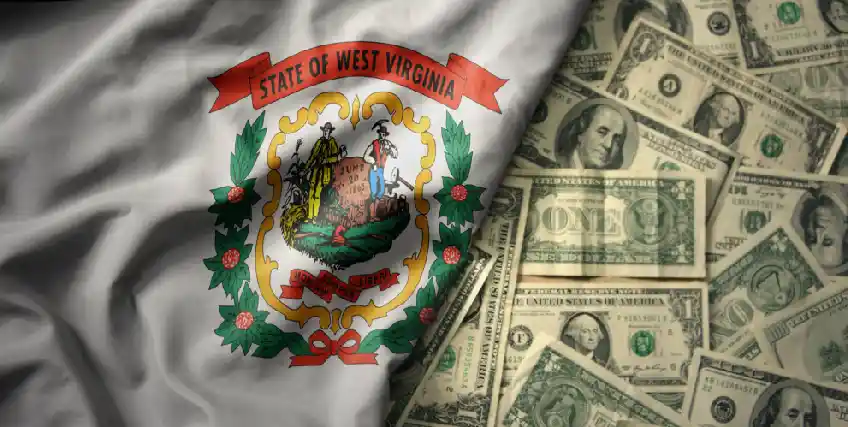Industry-Specific Small Business Grants in Virginia: Agriculture, Tech, and Retail
December 26, 2025 | Last Updated on: December 26, 2025

Virginia is a prime location for businesses of all varieties. It was chosen as the 2024 State of the Year for its business-friendly environment, including legislation and incentives, workforce development programs, and the wide range of companies selecting the state for corporate relocation and expansion projects. From Virginia’s rolling farmlands and historical sites to its blooming tech hubs and vibrant main street, it is powered by the innovation and dedication of small business owners.
Various small business grants in Virginia are available for specific industries to foster and continue their economic development. This article provides a detailed look at some significant small business grants in Virginia for the agriculture, tech, and retail sectors. These grants are non-repayable forms of financial assistance provided by governments, foundations, or private institutes to support business owners, making them one of the best funding sources for your business.
Small Business Grants in Virginia for the Agriculture Industry
Agriculture is Virginia’s largest private industry. The industry contributes $82.3 billion annually to the economy, generates more than 381,800 jobs in the Commonwealth, and has a $43.8 billion value-added impact. Agriculture and forestry industries have an economic impact of over $105 billion and provide more than 490,000 jobs in the Commonwealth. Every job in agriculture and forestry supports 1.6 jobs elsewhere in Virginia’s economy.
This rich agricultural tradition is supported by a strong network of funding opportunities to enhance crop competitiveness, support local food systems, and promote sustainable farming practices. Let's look at the various popular small business grants in Virginia available for the agricultural sector:
Agriculture and Forestry Industries Development Fund (AFID) Planning Grant program
This grant program funds local efforts to assist agriculture—and forestry-based businesses. It encourages local government and the agriculture/forestry community to collaborate and contribute to economic development. These small business grants in Virginia play a vital role in encouraging local economic growth and sustainability in rural communities.
- AFID Planning grants: It awards matching grants of up to $20,000 (single locality application) or $35,000 (multi-locality application) in partnership with local governments to promote or support agriculture and forestry through efforts such as creating strategic or marketing plans, conducting feasibility studies, drafting local ordinances, developing programs to preserve working lands, creating local plans or initiatives supporting agriculture and/or forestry-based businesses and funding innovative entrepreneurship and business development efforts.
- AFID Facility grants: These facility grants are awarded to political subdivisions for new or expanding facilities, such as produce companies, dairy processors, and others, to create jobs and investment in Virginia. The grant amount and terms are determined by the Secretary of Agriculture and Forestry and approved by the Governor. Industries such as indoor farming, meat processing, aquaculture, and forestry are identified as target growth opportunities by the AFID program, thus prioritizing these applications.
Interested businesses and localities should contact the Virginia Department of Agriculture and Consumer Services for more information.
Agribusiness Grant Program
This program's objective is to promote agriculture and agribusiness growth, development, and diversification in the tobacco region of the Commonwealth. This small business grants in Virginia aims to reduce dependence on tobacco and tobacco-related businesses and assist the agricultural industry in pursuing other marketing opportunities.
The Program seeks projects that lead to transparent and trackable improvements such as: increased net farm income; reduced operational costs for farms; value-added activities for Tobacco Region products; growth and preservation of jobs in farming and related sectors; greater private investment by farmers in their operations; increased agri-tourism revenue; and enhanced export of agricultural products beyond the Tobacco Region.
For this program, the applicants are expected to describe and be prepared to measure the anticipated ROI of proposed Commission investments.
Value-Added Producer Grant (VAPG)
VAPG is part of the Local Agriculture Market Program (LAMP), an umbrella program created under the 2018 Farm Bill. The program offers approximately $30 million in total funding, with a maximum of $75,000 available for planning grants and up to $250,000 for working capital grants. VAPG provides funding opportunities for agricultural producers, including harvesters, producer groups, farmer- or rancher-cooperatives, and majority-controlled producer-based business ventures. The VAPG may serve as a valuable small Business Grants in Virginia, helping to support local producers in expanding their operations and reaching new markets.
Producers are encouraged to complete the VAPG Self-Assessment survey to determine eligibility, though it is not required to begin the application process. However, it is a helpful tool in assisting agricultural producers in determining potential eligibility for the program. Once you receive the grant, you must send regular financial and performance reports. Your financial assistance agreement will explain how often to send reports, what forms to use, and what information to put in the reports.
To know more, you can contact your nearest rural development office.
Small Business Grants in Virginia for the Retail Industry
There are several potential grant opportunities for small retail businesses in Virginia. These small business grants in Virginia aim to increase retail presence and stimulate economic growth and job creation.
Virginia Food Access Investment Fund (VFAIF)
This provides grants of up to $50,000 for the construction, rehabilitation, equipment upgrades, or expansion of grocery stores, small food retailers, or innovative food retail projects in underserved communities.
It focuses on improving access to fresh foods, creating wealth, and improving health outcomes in low-income areas.
Retail Incentive Grant
This program aims to increase the retail presence and sales in the city of Hampton by providing incentives to attract and retain quality retail businesses.
The Hampton Economic Development Authority (EDA) administers and supports this program. Applications under the Retail Incentive Grant Program are accepted on a case-by-case basis. Applications must be submitted and accepted by the City of Hampton Department of Economic Development (HDED). Grant awards are discretionary and made by the Board of the Economic Development Authority (EDA) upon review of the project's eligibility and ability to fulfill the program's stated goals.
Small Business grants in Virginia for the tech industry
Small business grants in Virginia for the tech industry generally aim to stimulate technological innovation, support entrepreneurial activities, and foster economic development within the Commonwealth.
Regional Innovation Fund (RIF)
This program, administered by Virginia Innovation Partnership Corporation (VIPC), funds entrepreneurial support organizations (ESOs) that serve science and technology-based businesses. These ESOs help build and strengthen Virginia's innovation ecosystem. VIPC also offers the Federal Funding Assistance Program (FFAP) to assist early-stage companies in applying for federal SBIR/STTR grants. As part of the state's commitment to fostering growth, new business grants Virginia initiatives like these provide critical resources to support innovative startups across the Commonwealth.
Fairfax Founders Fund
This Grant provides technical assistance to early-stage startups in Fairfax County with up to $50,000 in funding. As one of the key grants for small business owners in Virginia, it aims to strengthen economic development by growing innovation-based companies and jobs. With this, it also addresses underrepresented and diverse founders, such as women, people of color, veterans, and persons with disabilities. Among the many Virginia grants to start a business, this program stands out for its focus on equity and innovation. To meet the eligibility requirements for this grant fund, the applicant must be a for-profit company, and a legally existing entity registered and in good standing with Virginia’s State Corporation Commission.
How to Write a Small Business Grant Proposal
After researching small business grants in Virginia, you must go through the dreaded process of writing your grant proposal, which can be challenging. Here are some tips that can help you ace your grant proposal.
- Read the Guidelines Carefully: Small business grants in Virginia have specific eligibility criteria, requirements, funding limits, and timeline. Ensure you review everything and evaluate whether your business and project fulfill the grant’s goal and address their interests to increase your chance of securing funding.
- Include a captivating cover letter: Your cover letter should be simple yet eye-catching. You should introduce your business plan, how much money you need, and what you need the money for. Tell your story as a business! Grant reviewers are always looking for compelling missions with a chance to make a positive impact, so keep this brief and to the point.
- Create an executive summary: To produce a winning grant proposal, start with an executive summary. It is a brief overview of the entire proposal. It should answer questions like the project's end goal and how the organization can measure its achievement.
- Write a direct problem statement: The problem statement or the statement of need outlines the problem you have identified and how you can solve it. This section provides in-depth, extensive research into the issues your project hopes to address. Underline the quantitative data and explain why starting this project is essential.
- List objectives and goals: After highlighting the problem you’re addressing, outline your project objectives and goals. Make sure your goals are measurable, realistic, and time bound.
- Describe methods and strategies to achieve your goals: In this section of your grant proposal, list all the costs involved in your business. It is crucial to discuss how the grant money will be spent. Ensure that your methods are rational, well-researched, and cost-effective.
- Outline your project budget: This section details the list of every item that the grantee is funding. Show how you plan to distribute the funds. A table specifying the item, quantity, cost, and other sections would be much appreciated to avoid any confusion.
- Present a strong organizational profile: It is essential to provide a brief history of your organization. Mention when the company/organization was started and why. Try to connect your mission to the grantee’s as naturally as possible. List the employees who would be working on the project. Mention their qualifications, expertise, and awards; this provides credibility to your organization.
- Give it a final examination: Just before you submit your article, do a final read, checking closely to see that the language is correct and clear in terms of grammar and formatting. The last step is especially critical when applying for a small business grant in Virginia, as many small details are crucial to the success of your application.
Final Thought
Getting small business grants in Virginia can be very challenging and competitive. Researching the right business resource for your industry and crafting a good grant application is lengthy and tiresome. Having a constant eye on state or federal gov grants is essential, so that you don’t miss any grant opportunity for your small business. With that, it’s also crucial to have a detailed business plan that aligns with the goals and objectives of the small business grant programs offered for causes like job creation, development of remote areas, and helping minority-owned businesses or women entrepreneurs. However, the above tips can help you secure small business grants in Virginia.
FAQs about Small Business Grants in Virginia
1. How many pages should a grant proposal be?
A grant proposal ranges from 5 to 25 pages, depending on the funder’s guidelines and the project’s complexity. Always check the specific requirements of the grant providers, as some may have strict page limits or formatting structures.
2. What are your options if you don’t qualify for a grant?
If you don’t qualify for grant opportunities, Virginia has many other funding options. The Virginia Small Business Financing Authority (VSBFA) has multiple programs to assist businesses, not-for-profits, and economic development authorities in financing their economic development and expansion needs throughout the Commonwealth. While small business grants in Virginia may not be available to everyone, VSBFA programs offer other avenues for obtaining the funding needed to grow and succeed.
3. What are the things to remember while writing a grant proposal?
A good grant proposal should be clear, concise, and compelling. Use simple words, do proper research, edit, and refine your proposal. Make sure you focus on the guidelines and purpose of small business grants in Virginia.
4. How often are new grant programs announced?
Some are annual programs with foreseen application windows; some are new programs caused by such events as COVID-19 or programs to assist certain industries. Keeping a close eye on the Virginia Department of Small Business and Supplier Diversity (SBSD) websites is an essential step to stay informed.
5. What is the goal of the Agribusiness Grant Program?
The main objective of these small business grants in Virginia (AFID Planning grants, AFID Facility grants) is to grow and diversify the agriculture industry in Virginia's tobacco region to reduce economic dependence on tobacco. It seeks projects showing a Return on Investment (ROI) by increasing farm income, creating jobs, or boosting investment.
Frequent searches leading to this page
Related Articles
Term Loans are made by Itria Ventures LLC or Cross River Bank, Member FDIC. This is not a deposit product. California residents: Itria Ventures LLC is licensed by the Department of Financial Protection and Innovation. Loans are made or arranged pursuant to California Financing Law License # 60DBO-35839




